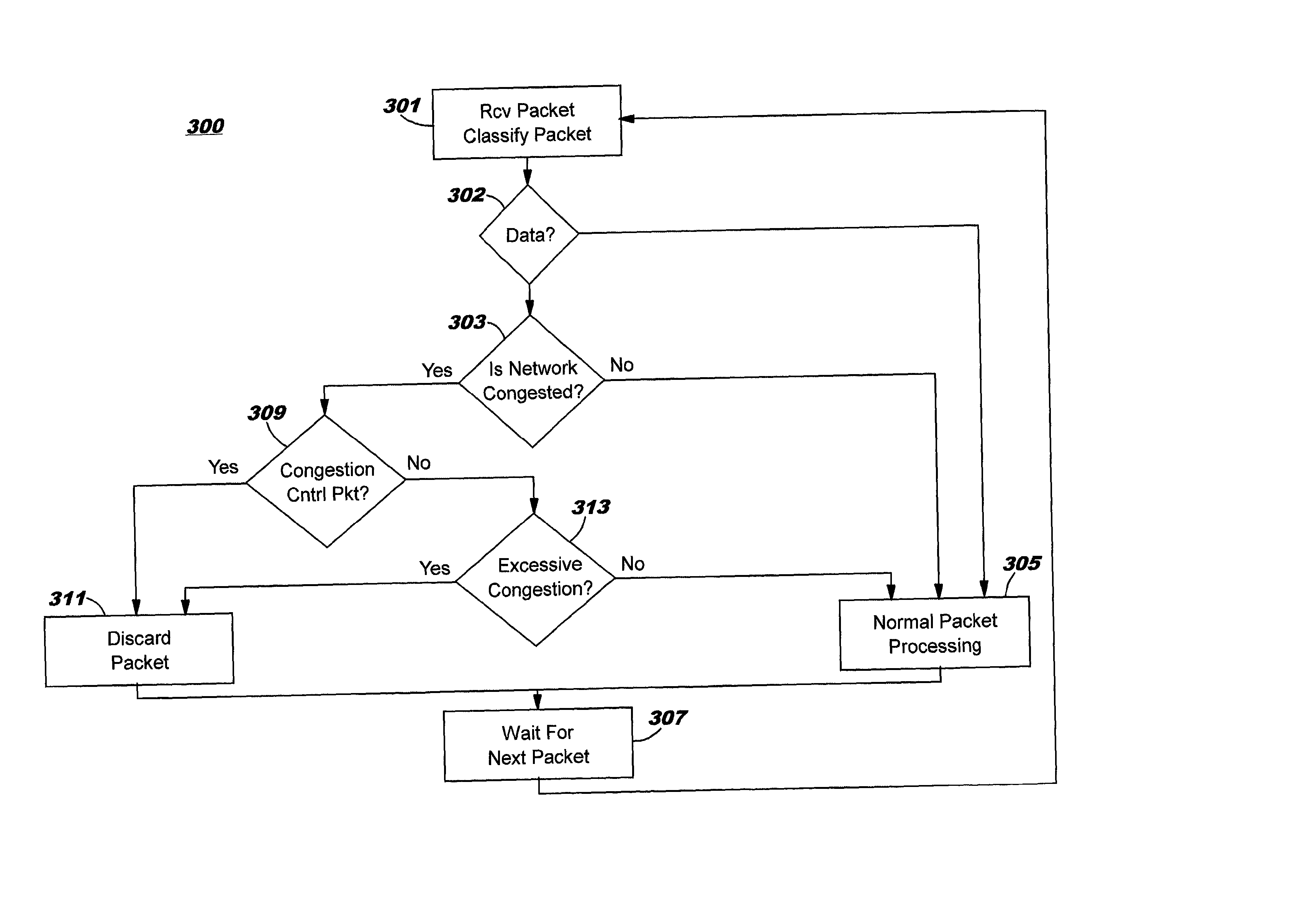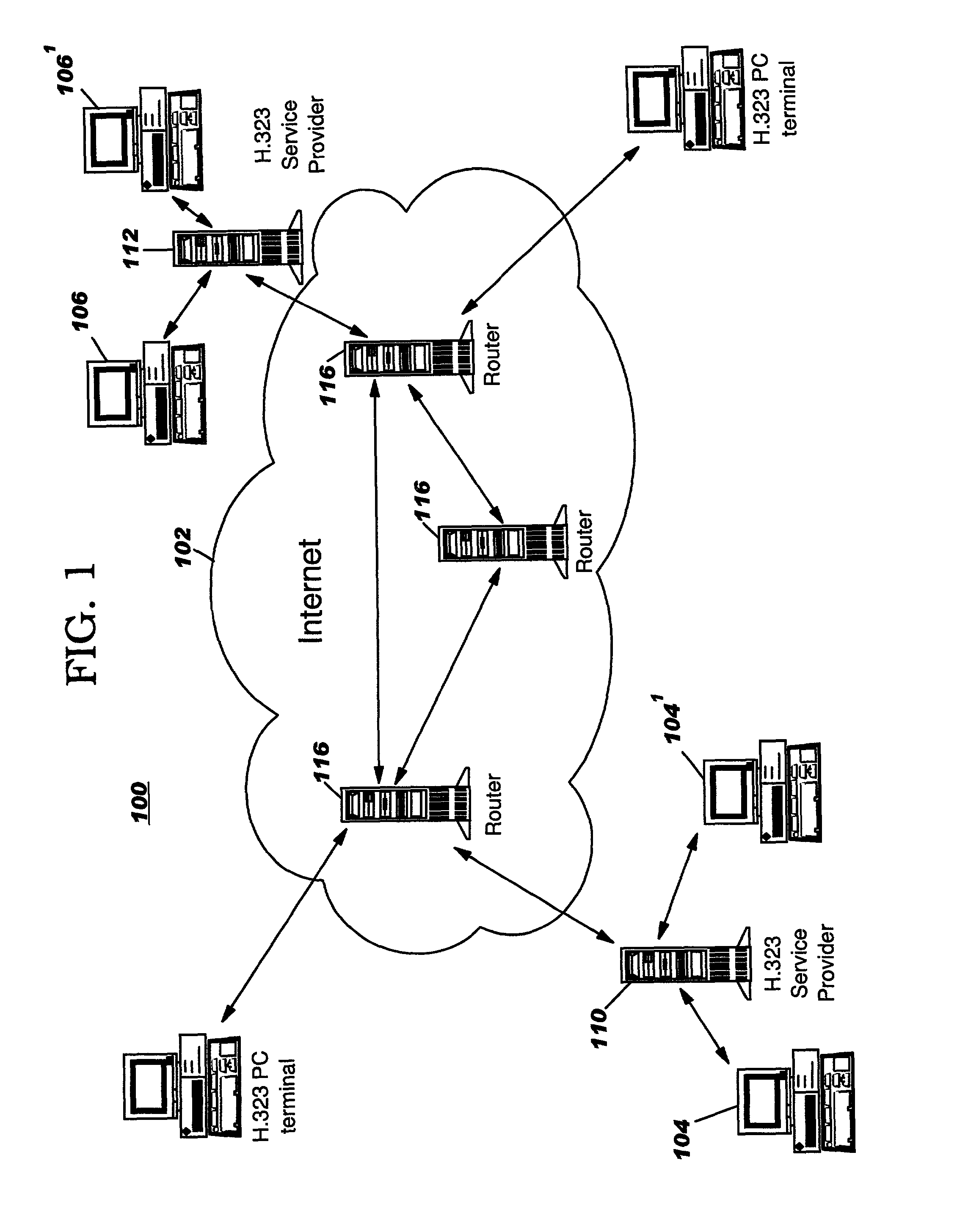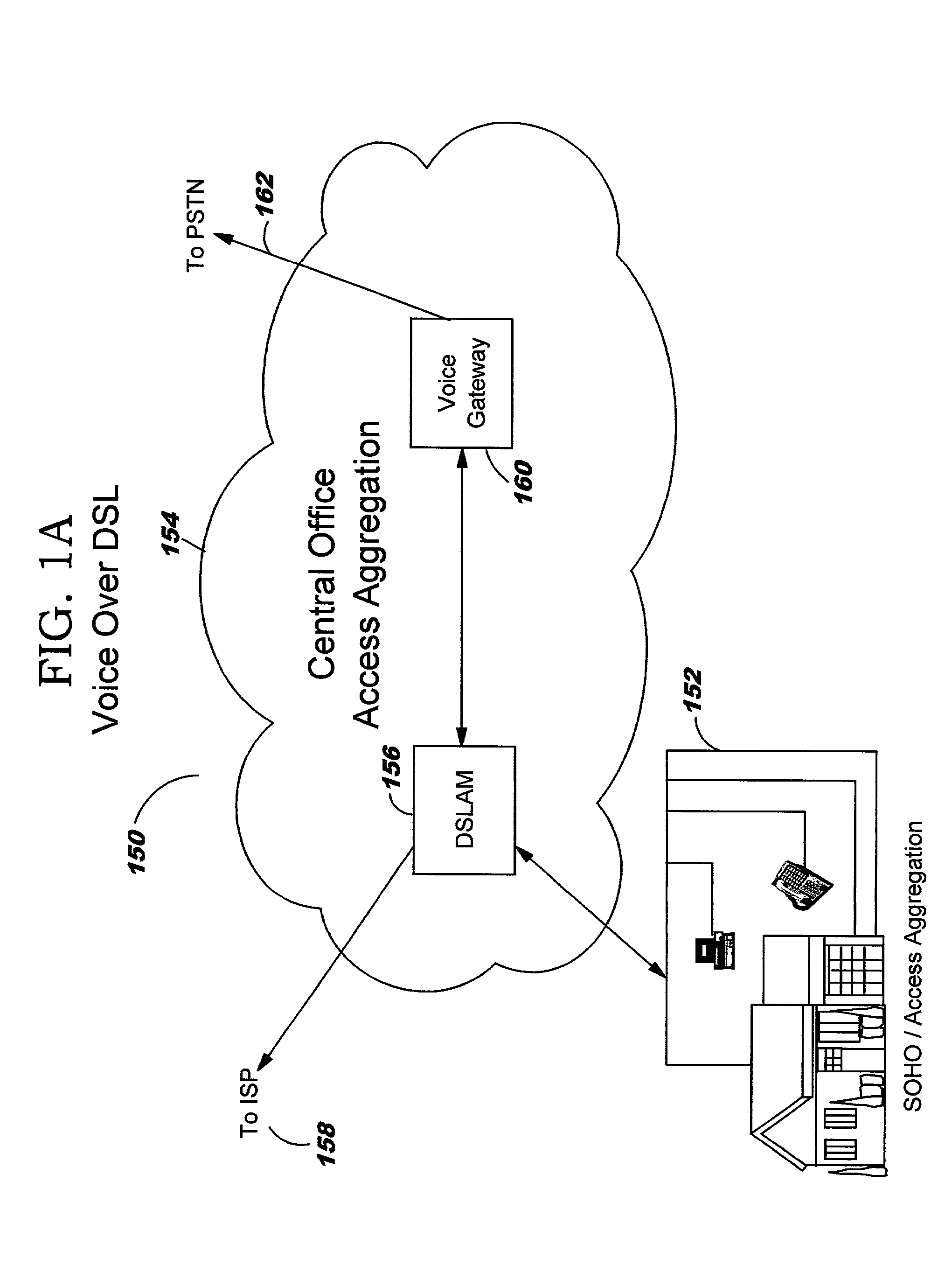Controlling network congestion using a biased packet discard policy for congestion control and encoded session packets: methods, systems, and program products
a network congestion and packet discarding technology, applied in the field of communication network methods, systems and program products, can solve the problems of affecting the quality of voice or image signals as perceived by users, affecting the quality of voice or image signals, and longer latency of data sessions, so as to increase the bit rate available and increase the speech quality of associated voice sessions
- Summary
- Abstract
- Description
- Claims
- Application Information
AI Technical Summary
Benefits of technology
Problems solved by technology
Method used
Image
Examples
Embodiment Construction
[0029] In FIG. 1, a network congestion detection and automatic correction system 100 for a packet network 102, typically the internet or private network, provides improved speech, video, and data transmissions to terminals or end points 104 and 106. The terminals are connected to the Internet via Internet Service Providers (ISP) 110 and 112, respectively. Other networks require similar access points. The service providers are in turn linked to routers 116 within the network 102 for directing the calls and data between the terminals 104 and 106. The operation of the internet for initiating and routing calls between terminals is well known and described, for example, in the text "Internet Architectures" by D. Minoli and A. Schmidt, published by John Wiley & Sons, New York, N.Y., 1998(ISBN 0-471 19081-0) which is fully incorporated herein y reference.
[0030] Terminals 104, 106 and the service providers 110, 112 function according to the framework of International Telecommunications Unio...
PUM
 Login to View More
Login to View More Abstract
Description
Claims
Application Information
 Login to View More
Login to View More - R&D
- Intellectual Property
- Life Sciences
- Materials
- Tech Scout
- Unparalleled Data Quality
- Higher Quality Content
- 60% Fewer Hallucinations
Browse by: Latest US Patents, China's latest patents, Technical Efficacy Thesaurus, Application Domain, Technology Topic, Popular Technical Reports.
© 2025 PatSnap. All rights reserved.Legal|Privacy policy|Modern Slavery Act Transparency Statement|Sitemap|About US| Contact US: help@patsnap.com



